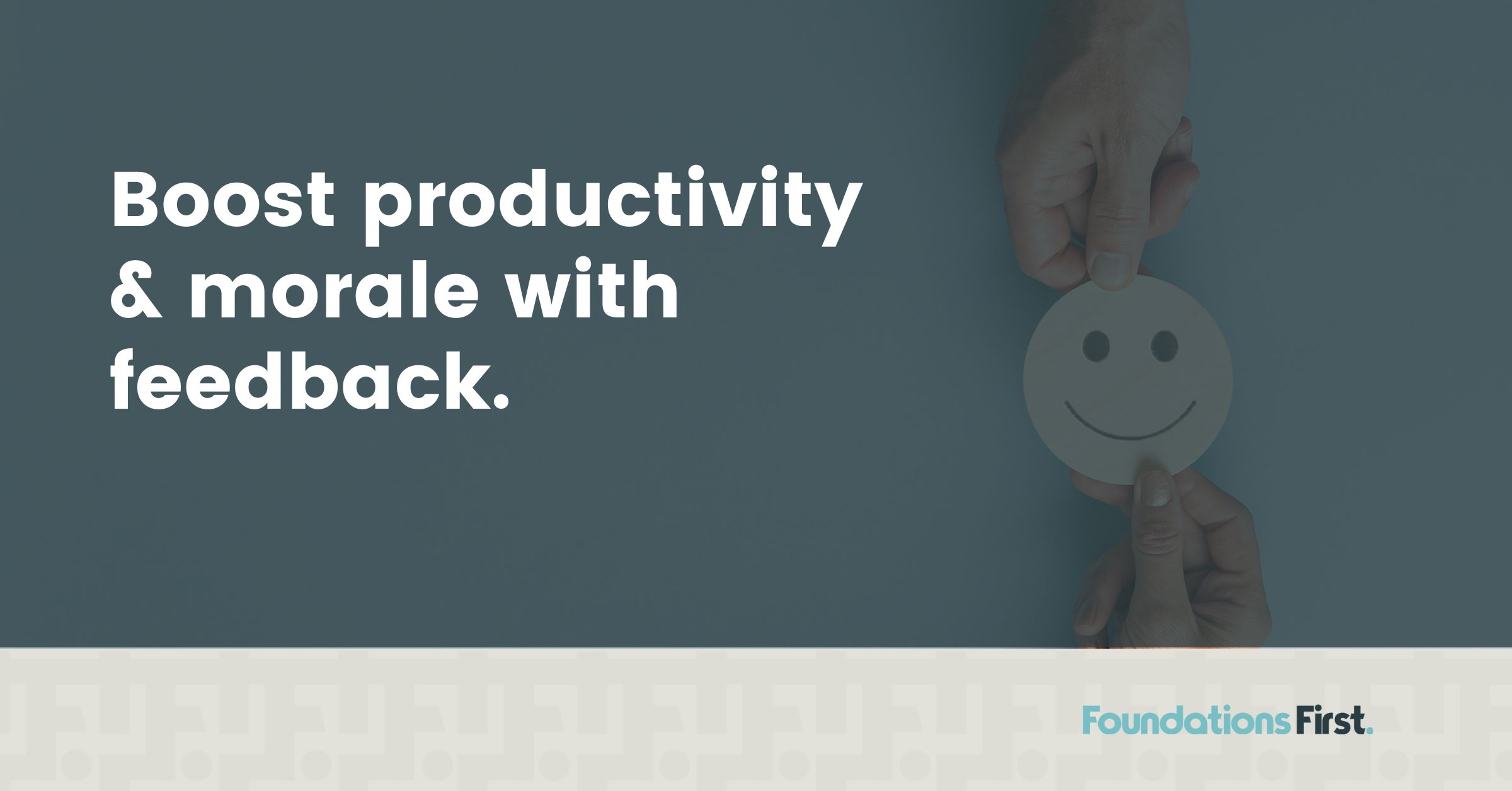Provide Feedback to Boost Productivity & Morale

What if I told you that only a third of your feedback is effective?
Let’s talk feedback. It’s a term thrown around like confetti in professional environments, classrooms, and even on sports fields. We’re often told it’s the bread and butter of improvement. But is it, really?
In truth, feedback is a double-edged sword. Done right, it can propel you towards your goals; done wrong, it can have you spiraling down a rabbit hole of self-doubt. You’ve heard the old saying about a team only being as strong as its weakest link. So as a leader, how do you provide effective feedback to every individual, ensuring they each get the feedback they need? Today, we’re going to break down this critical tool and unearth its true power when it comes to improving performance.
TL;DR – Provide feedback for tasks, not people…or watch your productivity crumble.
The Feedback Paradox
Picture this. You’re doling out feedback left, right, and center, believing that you’re paving the way for better performance. But what if I told you that only a third of your feedback is effective? A study by Kluger and DeNisi (1998) revealed just that.
They found that only one third of feedback improves performance. Another third? It did absolutely nothing. And here’s the kicker: the last third of feedback actually decreased performance.
Yes, you read that right. Sometimes, feedback can backfire, leading to a dip in performance. Sounds counterintuitive, doesn’t it? But stick with me, because there’s a method to this madness.
Task-focused Feedback: The True MVP
If feedback zeroes in on the task at hand, it encourages the recipient to hone their skills, correct errors, and seek necessary resources. It keeps them anchored to their goal, helping them navigate their path efficiently.
However, what happens when feedback veers towards the personal? If you tell someone, “You’re not very smart, are you?” it suddenly shifts their focus from the task to their self-worth. They begin to question their abilities and worth, diverting precious mental resources towards battling self-doubt instead of improving performance. Besides, you’d be hard pressed to find a person who is motivated by a put down like that. A better, more task-focused, comment might sound like, “Your goal was to X. You reached Y. Here are a few things you can try to reach that goal…”
To be truly effective, feedback cannot be based on personal traits, nor should it be criticism. Feedback must focus on the task. In essence, as feedback drifts away from the task and towards the person, its effectiveness plummets.
Praise: A Silent Saboteur
Now, you might be thinking, “But what about positive feedback? Surely calling someone smart can’t hurt?”
The research begs to differ. Overpraising or complimenting a person’s intelligence or talent, as opposed to their effort, isn’t tied to the task. When this ‘smart’ person experiences failure (as we all do), it shakes their self-worth. They start questioning their intelligence instead of focusing on the task or the effort they need to put in. In fact, if a person always hears how smart they are, they are actually more likely to give up when faced with a challenge (Elliot et al, 2017).
So, what should we do? Simple. Praise the effort. For example, “Your work reflects good effort” is far more constructive than, “You’re so smart.” The former keeps the focus on the task and the process, not on the individual’s inherent traits.
Putting the ‘Feed’ in Feedback
As leaders, teachers, or mentors, our job isn’t just to provide feedback. It’s to offer task-focused feedback that keeps the recipient’s attention on their goals and motivates them to strive harder. It’s about fueling growth, not ego.
So, the next time you’re giving feedback, ask yourself: Is my feedback task-focused or person-focused? Does it enhance their performance or self-worth? Remember, your words can either be a stepping stone or a stumbling block. Choose them wisely!
And as always, let’s continue striving not just for better goals but for better ways to achieve them, one task-focused feedback at a time.
Why are we even talking about feedback? We’re a marketing consultancy.
You might think this is a weird topic coming from a fractional CMO and consultant. And it would be for most. However, as I was researching how to provide feedback I realized that so many of our clients have had morale issues that stem from this concept. Here’s what I mean…
Marketing is often considered a very subjective discipline. We have to pitch idea after idea after idea. And our whole job is to test and learn, and test some more, and pivot. Guess what that means? We fail a lot. But often times the feedback we get is personal and we hear things like “why didn’t you do XYZ?” Or “why aren’t we doing ABC”? It’s demoralizing and exhausting.
With this in mind, I teach a different way to approach marketing leadership. It’s all about the goal. Instead of “why didn’t you do XYZ?” it becomes “how can adjust to reach this goal better?” It’s a growth mindset that’s focused on the task or the goal rather than the person doing it.
This is all subtle nerdery, but the marketing landscape needs to change. I think we can do a whole lot more if we shift our approach to be all about a growth mindset and feedback is focused on how can we accomplish goals better rather than on personal skills (or lack thereof). Plus, it makes marketing a helluva lot more fun.
Pro Tip: If you want helping choosing your marketing goals (or Rocks if you’re running on EOS®), I have a workshop for just that! Check out my Quarterly Marketing Rocks Workshop.
References
Andrew J. Elliot, Carol S. Dweck, & David S. Yeager. (2017). Handbook of Competence and Motivation : Theory and Application: Vol. Second edition. The Guilford Press.
Kluger, A. N., & DeNisi, A. (1998). Feedback interventions: Toward the understanding of a double-edged sword. Current Directions in Psychological Science, 7(3), 67–72.

Michelle Tresemer
Categories
- Analytics and Measurement
- Brand Messaging
- Competitor Analysis
- Content Marketing
- Digital Marketing Strategy
- Digital PR & Events
- Marketing Budgets
- Marketing KPIs
- Marketing News
- Marketing Rock Samples
- Marketing Staffing & Vendors
- Marketing Strategy
- Marketing Tech Stack
- Podcast
- Product Marketing
- Sales Marketing Alignment
- SEO
- Social Media
- Strategic Marketing Partnerships
- Target Markets
- Uncategorized
- Vision & Purpose
- Webmaster








